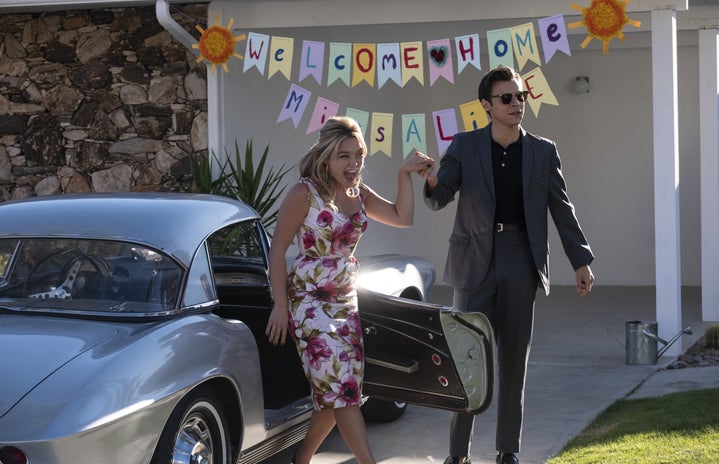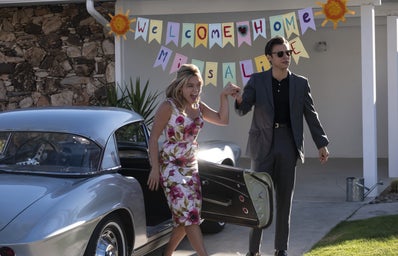On September 23rd, Olivia Wilde’s newest film, “Don’t Worry Darling,” was released in theaters. The film tells the story of Alice (Florence Pugh), a 1950’s housewife who lives a perfect life with her husband Jack (Harry Styles), in the isolated desert community of Victory. While the husbands work, the wives are left to shop, socialize and enjoy the many luxuries of their perfect existence. Alice eventually starts to see the sinister side of her idyllic life in Victory and begins to question everything.
The film itself is visually stunning; bright colors and cookie-cutter designs create a beautifully crafted atmosphere. Even in the darkest scenes, Wilde was able to create captivating beauty that kept me in awe throughout the film. This is arguably the only positive experience that Wilde’s film provides to the audience.
Pugh’s character quickly begins to see the cracks in her Stepford-like world, but her thoughts are rarely pressed upon. In fact, most of the film just left me wondering, further emphasizing how one-dimensional each character is. I fully stand by the fact that Chris Pine’s character, and his female counterpart played by Gemma Chan, deserved much more screen time than they were given. Both characters achieved a level of depth that Alice (Pugh) and Jack (Styles) failed to meet.
Pugh is a wildly talented actress who expresses her emotions vividly, on her face and in her voice. On the other hand, Styles fails to communicate emotion. His lack of experience and aptitude pulls Pugh down and undermines her essence throughout the film.
“Don’t Worry Darling” has managed to garner a lot of press on its own before it even premiered. The drama between Shia LaBeouf, who Styles later replaced, and Wilde was quickly spread across social media in a pathetic bout of he-said-she-said. Wilde and Styles are also rumored to have been in a relationship since the beginning of the film’s production. They were rumored to randomly disappear from the set, forcing Pugh to direct scenes on her own. Former set workers even claimed there was a “screaming match” between Wilde and Pugh on set. Pugh also remained absent from most media events for the film.
I would definitely recommend watching “Don’t Worry Darling” once, even if it is just to laugh at Styles’ “serious” scenes as most of the theater did. The drama surrounding the film will only harm its impact as a “feminist” piece of media. How can a movie be about women’s empowerment if it only sets Pugh and Wilde against each other? There was a heavy focus on the aesthetic, and virtually nothing in regards to substance.


